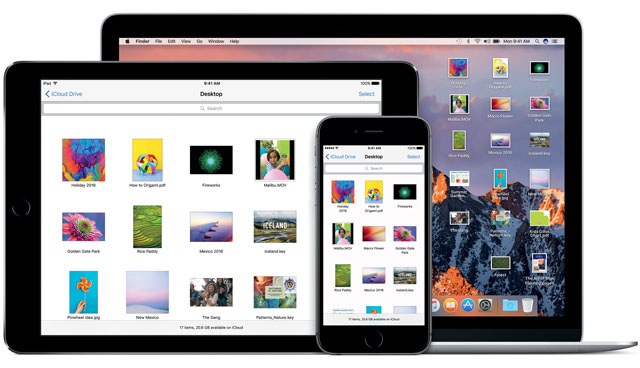
Apple’s new artificial intelligence (AI) capabilities may help it protect its software and services businesses from incursions by Alphabet’s Google — and cut the Internet giant out of lucrative search roles on its devices.
At Apple’s Worldwide Developer Conference this week, the company unveiled a crop of new AI-powered features: its Siri voice-based digital assistant expanded from iPhones and iPads to its Mac laptop and desktop computers; natural-language processing brought new automated emoji creation to the iPhone maker’s iMessage service; and image-recognition will give its gadgets the ability to automatically understand and organize photos stored on them.
The capabilities are, in part, a natural riposte to recent AI-infused Google offerings, such as a mobile keyboard, a popular picture-organising app named Photos and a planned digital assistant called Allo that will live inside a new mobile messaging system.
The Gboard keyboard was specifically designed for iPhones and is a way for Google to get its search service used in new ways on those devices. The Photos app works on iOS devices and Google’s own Android mobile operating system and represents a twist on Google’s search capabilities. Google hasn’t said whether Allo will work on iOS.
By developing homegrown AI-powered services for its iOS operating system, Apple can offer alternatives that benefit from being pre-installed on its devices.
The new Siri search features for its Mac computers use Microsoft’s Bing search engine, rather than Google, when querying the Web. And many of the answers Siri gives to users’ voice-based questions come from Apple’s own searches done inside apps installed on its gadgets.
“Consumers prefer voice when it comes to looking up quick things,” said Julie Ask, an analyst at Forrester Research. “It just becomes the easier way of people searching.
“I was with my nephews over the weekend and they don’t know anything but to hit the button and talk to their iPad,” she added.
As Apple adds more AI-based voice and text understanding to its software and services, it has a better chance of keeping consumers within its digital universe, rather than going to rival services to manage their digital lives.
Apple opened Siri to outside developers this week too, but it limited access to certain use cases like messaging, exercise and payments. This means the voice assistant won’t work with home automation equipment using third-party apps that aren’t compatible with Apple’s HomeKit platform — such as Alphabet’s Nest system and gadgets. — (c) 2016 Bloomberg LP

